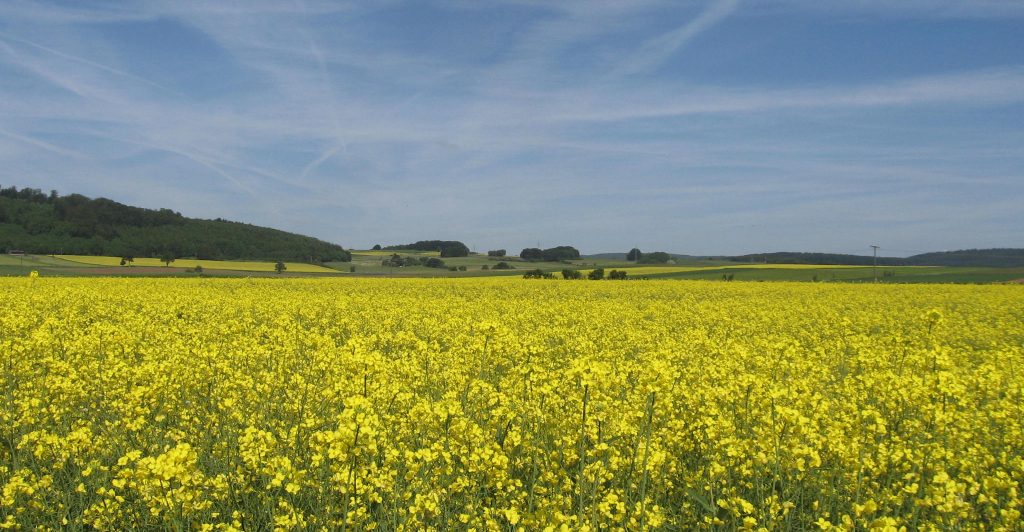Brussels, 14 January, 2008 – Friends of the Earth Europe has called on the European Commission to introduce a moratorium on plans to expand agrofuel use as two Commissioners go public with their concerns over the impact production will have on both people and the environment.
Environment Commissioner Dimas interviewed today by the BBC said that the environmental and social problems caused by agrofuels (also known as biofuels), “are bigger than we thought they were”, and said that the EU has, “to move very carefully”. [1] His comments follow a media interview given by Development Commissioner Michel three days ago agreeing for the first time that there should be a moratorium on new targets. [2]
Adrian Bebb, Agrofuels Campaign Coordinator for Friends of the Earth Europe said: “Public warnings from Commissioners Michel and Dimas should be a wake-up call to the rest of the European Commission. The EU’s proposed new law to regulate agrofuels will be a disaster for the environment and will heavily impact on the world’s poor. An urgent moratorium on setting new targets is the only sensible way forward.
“Using crops to produce fuel is a false solution to climate change – the real solutions lie in forcing car companies to produce cleaner cars, improving public transport and making our towns and cities more energy efficient.”
Last week, 17 environment and development organisations wrote to the European Commission calling for the EU’s proposed target for biofuels to be dropped unless comprehensive safeguards are introduced to protect people and the environment. The groups state that current drafts of a new law due to be announced later this month will not guarantee the sustainable production of biofuels, a key condition set by EU Heads of State last year. [3]
In a joint letter to Energy Commissioner Piebalgs, the groups [4] raise concerns that the draft law [5]:
Leaves important ecosystems unprotected: the current proposal does not provide protection for areas such as savannas (e.g. the Cerrado in Brazil) that may be threatened by expanding agriculture to meet the EU’s biofuel target. These areas also store huge amounts of carbon which would be released into the atmosphere if destroyed.
Side-lines negative impacts: Large scale biofuel production can cause knock-on impacts such as increasing food and feed prices and increasing water use. In addition, it can displace other agriculture activities into socially or environmentally sensitive areas (e.g. rainforests). The draft text does not provide any meaningful plan to deal with these issues, proposing instead to simply monitor the situation using bi-annual reports from Member States.
Ignores social standards: The draft text does not provide any criteria to protect people, particularly in developing countries, from the negative impacts of biofuel production. The scramble to supply European markets is already causing frequent land disputes, forced evictions, human rights abuses, increased poverty and poor working conditions in developing countries.
In addition the current version prevents Member States from introducing stronger conditions at a national level. It includes only limited criteria for transport fuels but no criteria for the same fuels used elsewhere such as in power stations.
The letter from the groups concludes, “We believe that if proper safeguards cannot be put in place the EU’s mandatory biofuel target must be suspended.”
***
NOTES:
1. http://news.bbc.co.uk/2/hi/europe/7186380.stm
2. http://www.ipsnews.net/news.asp?idnews=40762
3. The European Council in March 2007 agreed to a 10 per cent binding minimum target for the share of biofuels in transport by 2020. Council attached strict conditions to this target, notably, “subject to production being sustainable, second-generation biofuels becoming commercially available and the Fuel Quality Directive being amended accordingly to allow for adequate levels of blending”.
4. The letter can be downloaded from www.foeeurope.org/agrofuels and is signed by Friends of the Earth Europe, Birdlife International, European Environment Bureau, Greenpeace, Oxfam International, Wetlands International, Transport and Environment, Brot für die Welt, CAFOD, Tearfund, Corporate European Observatory, Rettet den Regenwald, Africa-Europe Faith & Justice Network, Stichting Natuur en Milieu, Quercus, Pro REGENWALD and Misereor.
5. Directive on the promotion of the use of energy from renewable sources (see in downloads).







